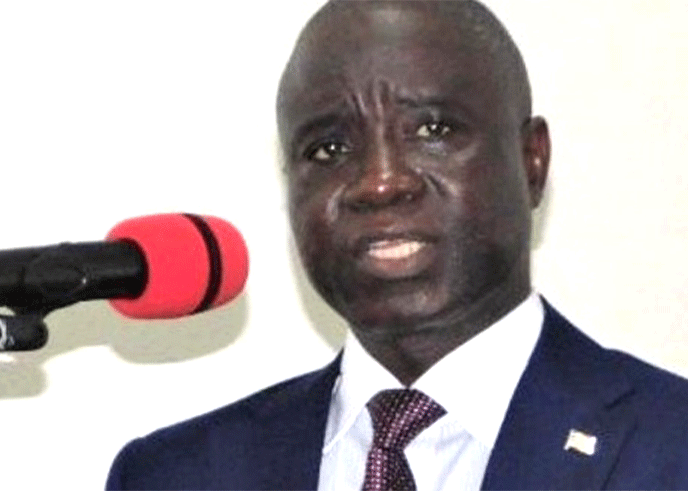Agriculture Minister, Dr. Alexander Nuetah has announced the Boakai Administration’s ambitious plan to cut rice importation by 70% over the next six years. Liberia, which heavily relies on rice imports despite it being the staple diet of its citizens, is now shifting focus to boost domestic production. “This reliance on imported staple foods underscores the urgent need to boost domestic agricultural production and lessen import dependency,” Minister Nuetah said
With 9.6 million hectares of land, of which only 2.7 million hectares are currently cultivated, Liberia has significant agricultural potential. The country’s abundant land, numerous rivers, and an average annual rainfall of about 4,000 millimeters enhance this potential.
Minister Nuetah explained that the plan focuses on technology and a value-chain approach, driven by strong political will to help farmers utilize innovative technologies for developing selected agricultural value chains.
According to Minister Nuetah, this six-year program, estimated to cost over US$700 million, includes establishing mechanization centers, strengthening agricultural research, providing access to finance through an Agriculture Enterprise Development Bank, and enhancing the Ministry of Agriculture’s capacities.
Despite its agricultural resources, Liberia remains a net importer of many commodities, including approximately 300,000 metric tons of rice annually, costing around US$200 million. This dependency poses a significant threat to the nation’s food security and economic stability.
Minister Nuetah called on all Liberians and partners to support the national agriculture growth program for sufficient food production. “The ‘Liberians, Feed Yourselves Agenda’ is a program every Liberian and our partners should embrace as a vision for the future,” Minister Nuetah urged. He added, “This is our chance to make a real difference in the lives of our people. Let’s seize it together and create the enabling environment and opportunities for indigenous wealth creation.”
To enhance food security, the government plans to increase national rice self-sufficiency by 70%, cut rice importation by 70%, reduce post-harvest losses by 15%, and boost rice farmers’ income by 30% within two years. Additionally, the agenda aims to increase cassava yields, mechanize maize production, improve fruit crop production, and boost vegetable production and consumption.
The Minister also noted that efforts will also focus on revitalizing the coffee sector, increasing certified fish products for export, and rehabilitating livestock production. “Fellow Liberians and development partners, while the investment outlined in this plan is substantial, Liberia’s agricultural economy demands even greater investment,” Minister Nuetah emphasized.
He highlighted the distressing fact that more than two million Liberians are currently food insecure and undernourished, despite the country’s vast arable land. The government, through the Agriculture Ministry, has committed to collaborating with all stakeholders including private-sector actors, development partners, the National Legislature, and line ministries and agencies-to mobilize the resources needed for this agenda.
“We will leave no stone unturned in our pursuit of a better and more prosperous Liberia,” Minister Nuetah pledged. The government also promised to effectively publicize the initiative, seeking the support and collaboration of the Liberian media. With Liberia’s extensive coastal belt, the fishery sector presents a significant opportunity.



